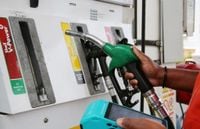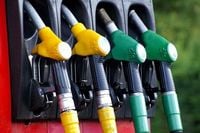South African motorists are breathing a sigh of relief as fuel prices drop significantly in May 2025. After months of strain due to high global oil prices and a weak rand, consumers are finally seeing the benefit of international market shifts and a stronger local currency. Here are five key takeaways from the latest fuel price update:
1. Petrol and Diesel Prices Have Dropped Sharply
As of Wednesday, 7 May 2025, fuel prices have decreased across the board:
- Petrol 93: down by R1.37 per litre
- Petrol 95: down by R1.39 per litre
- Diesel (0.05% sulphur): down by R0.55 per litre
- Diesel (0.005% sulphur): down by R0.45 per litre
These figures were confirmed by the Department of Mineral Resources and Energy (DMRE).
2. Why Are Fuel Prices Dropping Now?
The price cuts are largely due to:
- A stronger rand, which averaged R18.75/USD during the review period.
- Lower international oil prices, with Brent Crude trading below $85 a barrel.
- Decreased demand in major global economies, easing pressure on supply chains.
3. Filling Up Costs Much Less This Month
For a standard 50-litre tank of petrol:
- You’re saving around R68.50 if using 95 Unleaded.
- Diesel vehicle owners are saving approximately R27.50 per tank.
This is a welcome reprieve for both private motorists and businesses that rely on transport and logistics.
4. Economists Expect a Positive Ripple Effect
Lower fuel prices could help:
- Reduce food and goods transportation costs.
- Ease inflationary pressure on households.
- Improve consumer confidence and spending power.
According to analysts, if global trends remain stable, further fuel relief may be possible in the coming months.
5. Monitor Prices Monthly — Volatility Remains
Despite this drop, fuel prices in South Africa are still subject to:
- The fluctuating rand-dollar exchange rate
- Changes in Brent crude oil prices
- Local fuel levies and taxes
Motorists are advised to stay informed each month via DMRE announcements.
Quick Recap of May 2025 Fuel Prices:
In a related announcement, the Department of Petroleum and Mineral Resources confirmed the fuel price cuts effective Wednesday, 7 May 2025, driven by a drop in global oil prices despite a weaker rand and a rise in carbon fuel levies. Minister Gwede Mantashe noted the importance of international factors, stating, "International factors include the fact that South Africa imports both crude oil and finished products at a price set at the international level, including importation costs, like shipping costs." He attributed the recent fuel price changes mainly to falling crude oil prices, noting that Brent Crude dropped from $71.04 to $66.40.
Other contributing factors included shifts in international fuel prices, the Rand-dollar exchange rate, and the application of the Slate levy. However, the rand weakened from R18.30 to R18.83/$, adding some cost pressures. Fuel levies remain largely unchanged except for a carbon levy increase of 3 cents/litre for petrol and diesel, now at 14c/l and 17c/l respectively.
Another fuel price decrease brings welcome relief for consumers and businesses, according to the South African Petroleum Retailers Association (SAPRA). National vice chairperson Lebo Ramolahloane stated, "The reductions offer much-needed relief during a challenging economic period." He highlighted that with petrol down by 22 cents and diesel by up to 42 cents, the impact is tangible. For example, a motorist filling a 50-litre tank of 95 unleaded petrol will now save approximately R11 per fill. Diesel users, particularly in logistics and agriculture, stand to benefit from reductions of over R20 per tank.
These lower input costs can support food security and job retention in fuel-intensive sectors such as agriculture, logistics, and public transport. Ramolahloane also noted that the increased volumes at service stations from consumers responding to lower pump prices are likely to provide a boost in revenue for petroleum retailers, particularly as retail margins remain stable.
The global oil market is being influenced by geopolitical factors, notably the recent escalation in trade tensions between the US and China. The re-imposition of tariffs by the US has disrupted oil demand, especially from China – a major Brent crude importer – leading to excess supply and driving down prices. "While we welcome the current decline in prices, we must remain cautiously optimistic. Global market volatility and local political uncertainty under the newly formed Government of National Unity require close monitoring," Ramolahloane concluded.
As South African motorists fill their tanks at lower prices, the hope is that this trend continues, providing much-needed economic relief and supporting consumer confidence in the months ahead.


